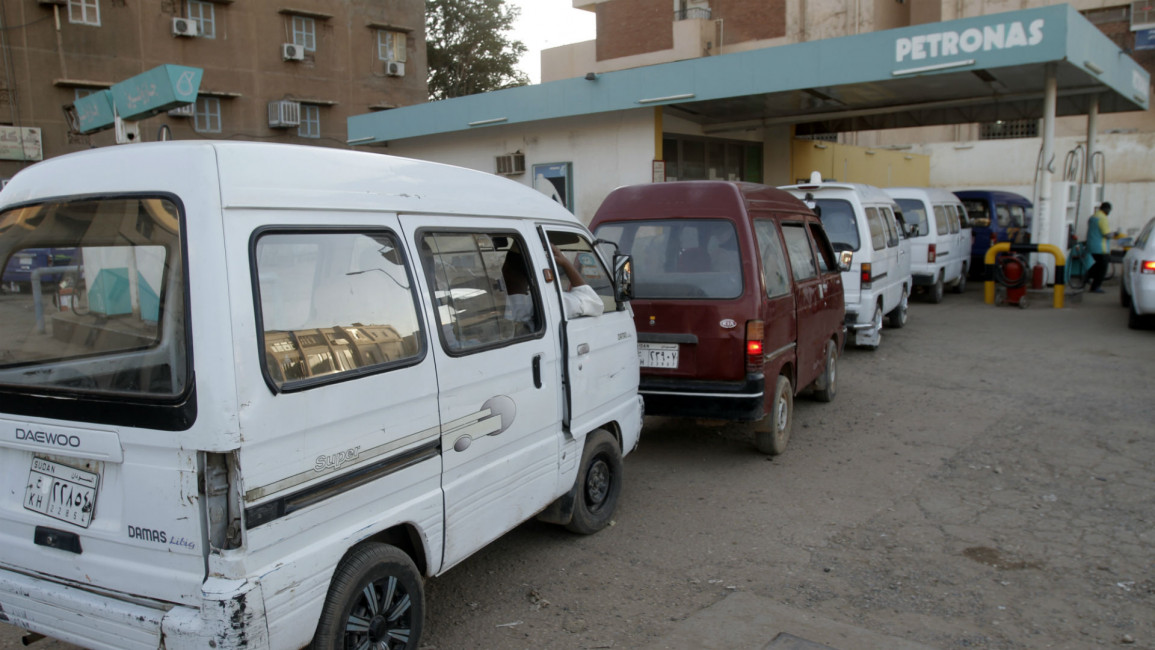Sudan fuel shortage hikes black market prices
Black market fuel prices surged in Khartoum and other Sudanese towns on Saturday, as petrol and diesel shortages forced residents to queue for hours outside gas stations.
Fuel supplies began dwindling in early April, with officials blaming maintenance delays at a key refinery, although foreign currency shortages have also played a role.
The crisis has since escalated despite official pledges to resolve it.
The shortage has hiked prices of petrol on the black market, with a gallon costing 150 pounds ($5.30, 4.40 euros) in Khartoum, over five times the official price of 27 pounds.
"I purchased two gallons at this high cost from the black market," said Mohamed Abbas, a resident of a working class neighbourhood in the capital.
"I bought it from someone who had filled his car tank after waiting the whole night at a fuel station."
Another Khartoum resident told AFP that he too had waited through the night outside a fuel station to fill his tank.
"From 11:00 pm Friday until 7:00 am today I was waiting in my car at a fuel station," he said.
Most petrol stations were receiving less than their allotted quotas of petrol and diesel, with attendants often keeping the outlets shut once they sold their stock.
Farmers too complained that they were unable to transport their products to market as hundreds of trucks had been grounded.
"My entire crop of tomatoes is destroyed," said Ali Khider, a farmer from the state of Jazira.
"For a week now I have been unable to transport it to the main market because there is no vehicle."
Officials promised a quick end to the crisis, saying it was caused by a delay in maintenance work at the country's main refinery north of Khartoum.
But an acute shortage of foreign currency has also aggravated the situation.
"There are some oil tankers waiting at Port Sudan to be unloaded but there's a delay in paying them," Minister of State for Oil Saadeddin Bushra told lawmakers this week.
The crisis comes amid surging inflation that has triggered sporadic anti-government protests in Khartoum and other towns.
Economy crisis
Sudan's overall economy has been hit hard, particularly after the south separated from the north in 2011, taking with it about 75 percent of the country's overall oil revenues.
Meanwhile on Thursday, Sudan’s President Omar al-Bashir ordered the closure of 13 Sudanese overseas missions and job cuts at the foreign ministry due to the economic crisis.
The president also ordered seven other missions to reduce their diplomatic staff to just one person, and a broader 20 percent cut to administrative staff at all missions.
“The decisions have been taken in order to cut costs given the economic situation in the country,” the decree said.
The acute shortage of foreign currency that has seen the pound plunging against the dollar, forcing the central bank to devalue it twice since January.
Expectations of a quick economic revival had been high after Washington lifted a trade embargo.
But officials say the situation has not changed at all as international banks continue to be wary of doing business with Sudanese banks.
Sudan’s overall economy was hit particularly hard after the south separated from the north in 2011, taking with it about 75 percent of oil earnings.



